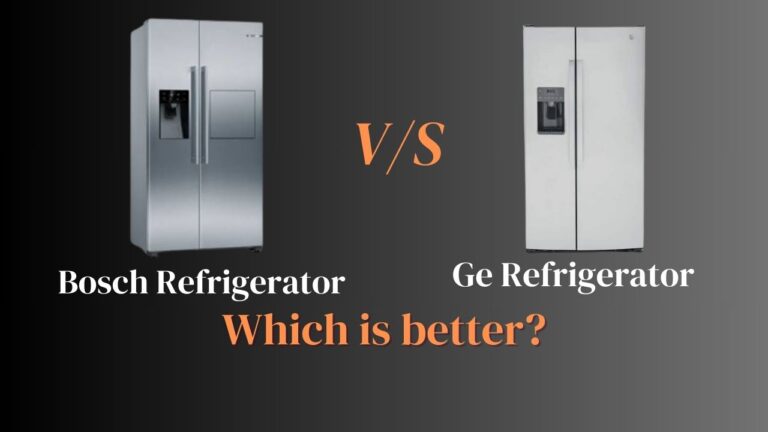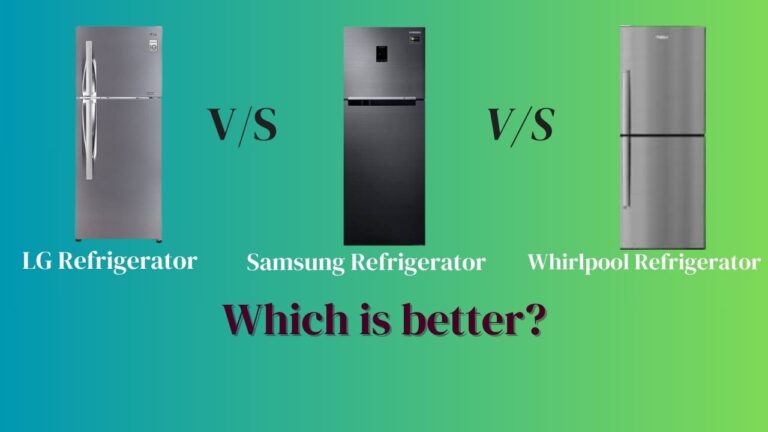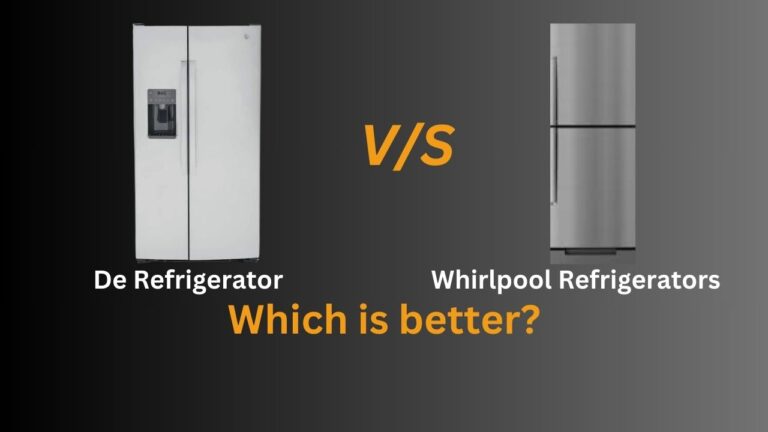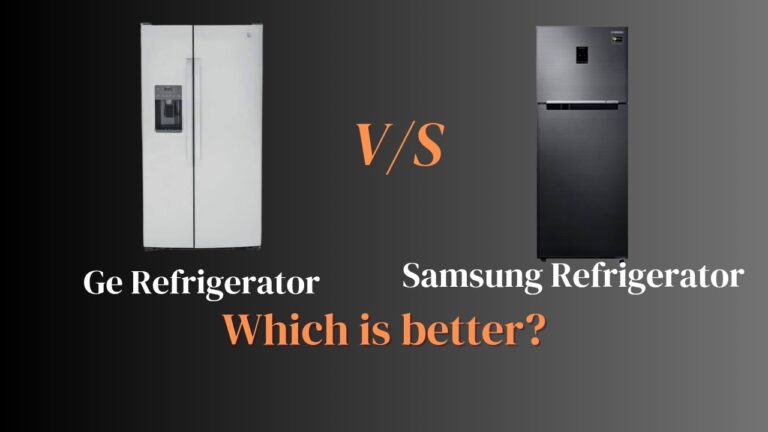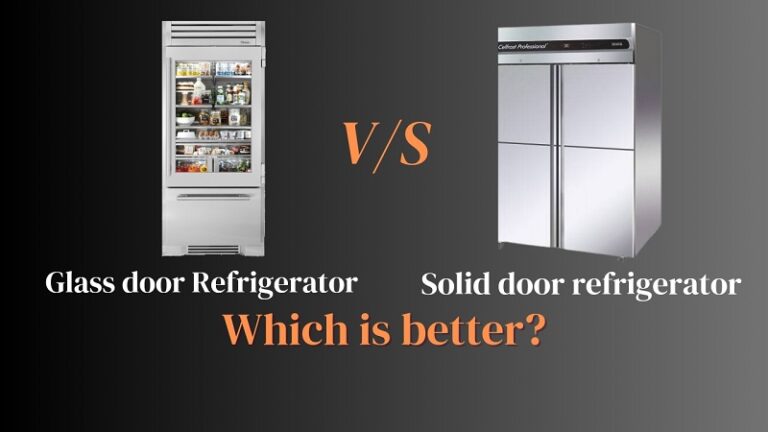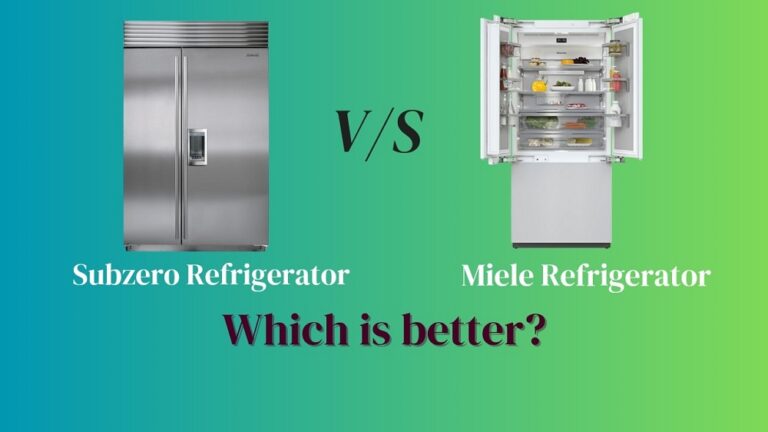Coolers and refrigerators have different functions; while coolers use ice or cold packs to maintain low temperatures, refrigerators use electricity to cool food and beverages. We will discuss the differences between coolers and refrigerators, including their features, uses, and benefits.
We will explore factors such as portability, power source, temperature control, storage capacity, and overall performance. By understanding the distinctions between these two appliances, you can make an informed decision when choosing the right option for your specific needs.
Whether you need to keep your drinks chilled during a picnic or store a week’s worth of groceries, this guide will help you determine the most suitable solution for your cooling requirements.
Understanding The Functionality Of Coolers And Refrigerators
When it comes to keeping our food and beverages fresh and cool, we rely on two main appliances: coolers and refrigerators. While they may appear similar at first glance, it’s essential to understand their functionality and key differences. Let’s dive into the basics of coolers and refrigerators to gain a deeper understanding.
Key Differences In Cooling Mechanisms And Temperature Control
Coolers and refrigerators differ significantly in their cooling mechanisms and temperature control. Let’s explore these key differences:
| Coolers | Refrigerators |
| Cooling Mechanism: | Cooling Mechanism: |
| Coolers rely on insulation and ice packs to keep the contents cool. The insulation acts as a barrier, minimizing the external temperature’s effect on the interior. The ice packs absorb heat and provide cooling. | Refrigerators use a compressor-based cooling system. Here, a refrigerant circulates through coils, absorbing heat inside the fridge and releasing it outside. The compressor plays a crucial role in maintaining the desired temperature. |
| Temperature Control: | Temperature Control: |
| Coolers have limited temperature control options. The cooling power relies on the number and quality of the ice packs used. While it can keep the contents cold, precise temperature control is challenging. | Refrigerators offer precise temperature control through a thermostat. You can set the desired temperature, and the fridge consistently maintains it. This level of control makes it ideal for storing perishable items safely. |
Understanding these differences in cooling mechanisms and temperature control is crucial when considering the right appliance for your needs. Coolers are perfect for picnics, camping trips, or short-term cooling requirements. Refrigerators, on the other hand, are designed for long-term storage and proper preservation of various food items.
Cooling Efficiency
When it comes to keeping our food and beverages cool, we rely on two main appliances: coolers and refrigerators. However, each of these options differs in terms of cooling efficiency. in this section, we will compare the cooling efficiency of coolers and refrigerators, and explore their impact on energy consumption and cost-effectiveness.
Comparing The Cooling Efficiency Of Coolers And Refrigerators
Coolers and refrigerators both have the primary function of cooling, but their mechanisms vary significantly. While coolers are designed to maintain the temperature of stored items using insulation and ice packs, refrigerators utilize a complex system of refrigeration that involves compressors and coolants.
When it comes to cooling efficiency, refrigerators have the upper hand. The refrigeration process in a refrigerator ensures a consistent and controlled cooling environment, allowing perishable items to stay fresh for longer periods. On the other hand, coolers rely on ice or ice packs, which can melt over time, leading to a gradual decrease in cooling effectiveness.
Impact On Energy Consumption And Cost-effectiveness
While refrigerators boast better cooling efficiency, they consume more energy compared to coolers. The compressors and cooling components in refrigerators require a significant amount of electricity to operate, resulting in higher energy bills.
Coolers, on the other hand, do not rely on electricity and therefore have a minimal impact on energy consumption. In terms of cost-effectiveness, coolers are more budget-friendly compared to refrigerators.
Refrigerators are costly to purchase, require regular maintenance, and contribute to higher energy bills. Coolers, on the other hand, are more affordable, easy to maintain, and provide a cost-effective solution for short-term cooling needs, such as picnics, camping trips, or outdoor events.
In summary, while refrigerators offer better cooling efficiency and long-term storage capabilities, coolers provide a more energy-efficient and cost-effective solution for temporary cooling requirements. Consider your specific needs, long-term use, and budget constraints when choosing between these two appliances.
Portability And Storage
When it comes to choosing between a cooler and a refrigerator, evaluating the portability and storage capacity are two crucial factors to consider. Depending on your needs and the specific scenario, one option may be more suitable than the other.
In this section, we will delve into the portability of coolers and the storage capacity of refrigerators, providing insights to help you make an informed decision.
Evaluating The Portability Of Coolers
Coolers are renowned for their portability, making them the go-to choice for outdoor enthusiasts, campers, and picnickers. These versatile appliances are typically lightweight and feature convenient handles or straps for easy carrying.
Whether you’re hiking in the mountains, lounging on the beach, or attending a tailgate party, a cooler offers the convenience of keeping your food and beverages chilled on the go.
Moreover, cooler designs often incorporate features such as wheels or telescopic handles, further enhancing their portability. With these additions, maneuvering a cooler becomes effortless, and you can easily transport it across different terrains, whether it’s sandy beaches or bumpy trails.
The compact size of coolers also enables hassle-free storage in vehicles, ensuring they don’t take up excessive space.
Evaluating The Storage Capacity Of Refrigerators
When it comes to storage capacity, refrigerators are unmatched. These appliances are designed to hold a substantial amount of food and beverages, making them ideal for households, offices, or businesses that require long-term storage and larger quantities.
Refrigerators typically come with multiple compartments, shelves, and drawers, allowing for organized storage and easy access to your items. The adjustable shelves in refrigerators are a significant advantage, allowing you to customize the storage space based on your needs.
Whether it’s accommodating bulk food purchases or storing larger containers, refrigerators provide the flexibility required for varying scenarios.
Additionally, the ability to control temperature settings in refrigerators ensures optimal food preservation, preventing spoilage and extending the shelf life of perishable items.
Which Option Is More Suitable For Different Scenarios?
When considering the portability and storage factors, the right choice between a cooler and a refrigerator depends on the scenario at hand. If you’re looking for portable cooling solutions for outdoor activities or short-term trips, a cooler is the obvious choice.
Its lightweight design, comfortable carrying options, and ability to keep your items cold make it perfect for on-the-go adventures. On the other hand, if you require long-term storage for a larger volume of food and beverages, a refrigerator is the more suitable option.
Its spacious capacity, adjustable shelving, and temperature control capabilities make it an excellent investment for households, offices, or commercial establishments. Refrigerators are built to effectively store and preserve your items, ensuring they stay fresh for extended periods.
Temperature Control And Food Safety
When it comes to keeping our food safe and fresh, the temperature control features of coolers and refrigerators play a crucial role. Understanding how these features work can help us make informed decisions about which appliance is best suited for our needs.
Examining The Temperature Control Features Of Coolers And Refrigerators
Both coolers and refrigerators are designed to maintain low temperatures and prevent food spoilage. However, they differ in the way they achieve and regulate these temperatures.
Coolers, also known as portable ice chests, are typically used for short-term storage, such as picnics or camping trips. They rely on insulation and ice or ice packs to keep perishable items cool.
Without any built-in temperature control mechanisms, coolers are unable to maintain specific temperature levels. As a result, the temperature inside the cooler can fluctuate depending on factors like the external environment and the amount of ice or ice packs used.
On the other hand, refrigerators are equipped with advanced temperature control systems that allow users to set and maintain specific temperature ranges.
These systems usually include a thermostat, which regulates the cooling process, and sensors that monitor internal temperatures. Refrigerators maintain a consistent temperature throughout, ensuring that food stays fresh and safe for extended periods.
Ensuring Optimal Food Safety And Freshness
Proper temperature control is crucial for maintaining optimal food safety and freshness. Incorrect temperatures can lead to the growth of harmful bacteria, causing foodborne illnesses.
Refrigerators provide a more reliable and consistent environment for storing perishable items. The ability to set precise temperatures ensures that food remains within safe temperature zones, typically between 32°F (0°C) and 40°F (4°C).
This range inhibits bacterial growth and maintains the quality and flavor of the food for longer periods. Additionally, refrigerators often offer separate compartments, such as drawers for fruits and vegetables, which allow for specific temperature and humidity adjustments, further enhancing food safety and freshness.
Coolers, while suitable for short-term storage, may not provide the same level of food safety and freshness as refrigerators. The fluctuating temperatures within a cooler can increase the risk of bacterial growth and food spoilage, especially if used for an extended period.
Therefore, it is essential to consume perishable items from coolers quickly or replenish the ice or ice packs regularly to maintain appropriate temperatures.
In summary, while coolers serve their purpose for short-term storage or outdoor activities, refrigerators offer superior temperature control features that ensure optimal food safety and freshness. Investing in a refrigerator with advanced temperature regulation mechanisms is the ideal choice for those seeking long-term storage solutions for their perishable items.
Practical Applications And Versatility
When it comes to keeping our food and beverages fresh and cold, two common options often come to mind – coolers and refrigerators. Both appliances serve the purpose of preserving perishable items, but they have distinct features that make them suitable for different scenarios.
In this section, we will explore the practical applications of coolers and refrigerators and determine which option offers more versatility in various situations.
Exploring Specific Use Cases For Coolers And Refrigerators
Let’s delve into the specific use cases where coolers and refrigerators shine, and understand their unique benefits:
| Use Case | Coolers | Refrigerators |
| Outdoor Adventures | Coolers excel in outdoor adventures such as camping, picnics, and beach trips. Their portability, insulation, and ice retention capabilities make them perfect for keeping food and drinks cold without relying on an external power source. | While refrigerators may not be practical for outdoor adventures due to their reliance on electricity, they are ideal for permanent or semi-permanent setups like RVs or outdoor kitchens. They offer a constant and adjustable temperature control to ensure consistent cooling. |
| Everyday Use | Coolers are convenient for short-term storage of perishable items, especially when a power outage occurs or during gatherings. Their mobility allows you to transport them wherever you need to keep items cool, whether it’s a backyard barbecue or a road trip. | Refrigerators are designed for everyday use in homes, offices, and commercial establishments. They provide a reliable and consistent temperature to ensure long-term storage of perishable items. With adjustable shelves and storage compartments, refrigerators offer convenient organization for various food items. |
| Specialized Applications | Coolers find relevance in specialized applications such as medical or vaccine transportation, where temperature control is critical. Their insulation properties help maintain the required temperature range for sensitive medications or samples. | Refrigerators are essential in industries like food service, pharmaceuticals, and laboratories. They are designed to meet specific requirements for temperature control, ensuring the safety and quality of products. |
Determining Which Option Offers More Versatility In Various Situations
When comparing coolers and refrigerators in terms of versatility, it becomes evident that both appliances excel in different scenarios. Coolers provide mobility, portability, and independence from electricity, making them versatile for outdoor activities and temporary storage needs.
Refrigerators, on the other hand, offer stable and adjustable temperature control, catering to everyday use, long-term storage, and specialized applications.
In summary, when considering practical applications and versatility, the choice between a cooler and a refrigerator ultimately depends on the specific needs and circumstances. Whether you require flexibility for outdoor adventures or reliable temperature control for everyday use and specialized applications, both options have their strengths that make them valuable appliances in the preservation of perishable items.
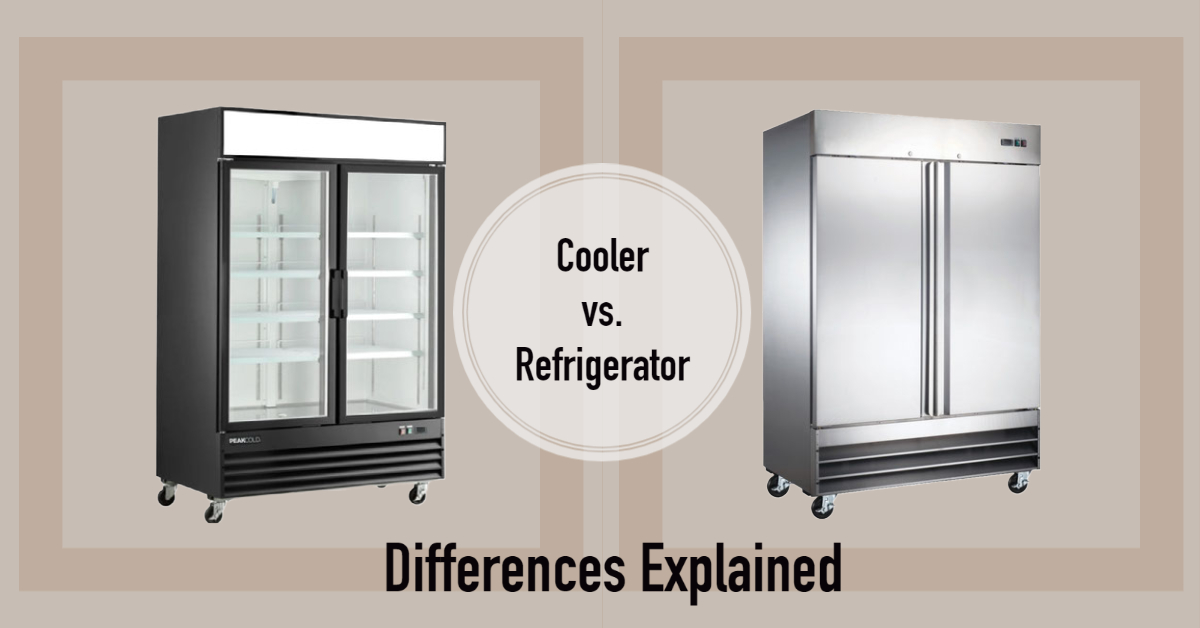
Credit: ironmountainrefrigeration.com
Frequently Asked Questions On Cooler Vs Refrigerator
What Is The Difference Between A Cooler And A Refrigerator?
A cooler is a portable device that helps keep food and drinks cool for a short period of time, while a refrigerator is a larger appliance that is designed to store food at lower temperatures for longer periods, offering more storage space and features like freezing.
Can A Cooler Function As A Refrigerator?
While coolers can keep food cool for a limited time, they are not intended to function as a refrigerators. Refrigerators have mechanisms like compressors and insulation to maintain specific temperature levels and preserve food for extended periods, which coolers lack.
Is A Refrigerator More Energy Efficient Than A Cooler?
Yes, refrigerators are typically more energy-efficient than coolers. Refrigerators are designed to maintain consistent and precise temperatures, minimizing energy usage.
Coolers, on the other hand, may require additional ice or cooling agents and do not have the same level of insulation, resulting in higher energy consumption.
Are Refrigerators More Expensive Than Coolers?
Generally, refrigerators cost more than coolers due to their larger size, advanced features, and better temperature control mechanisms.
However, the price can vary based on the specific model, brand, and additional features offered. Coolers tend to be more affordable, but they offer limited storage space and fewer features compared to refrigerators.
Conclusion
Overall, when considering the choice between a cooler and a refrigerator, it ultimately depends on your specific needs and preferences. Both options have their own advantages and disadvantages. While coolers are portable and great for outdoor activities, refrigerators offer more storage capacity and temperature control.
It is important to weigh the pros and cons before making a decision. Ultimately, it comes down to what works best for you and your lifestyle.
Hello Readers, I am Mechanic Shuvo, a seasoned refrigerator solution expert with over 11 years of hands-on experience in the field. Throughout my career, I've dedicated myself to understanding the ins and outs of refrigeration systems, honing my skills as a refrigerator mechanic. My passion for these appliances led me to create the website "refrigeratorsolutionsguide.com," where I aim to share my wealth of knowledge and expertise with others.
Over the years, I've encountered a wide range of refrigerator issues and have successfully resolved them all. From common problems like temperature fluctuations and strange noises to more complex technical issues, I've seen it all. Through my website, I hope to provide practical solutions, insightful tips, and guidance to help you keep your refrigerators running smoothly.


